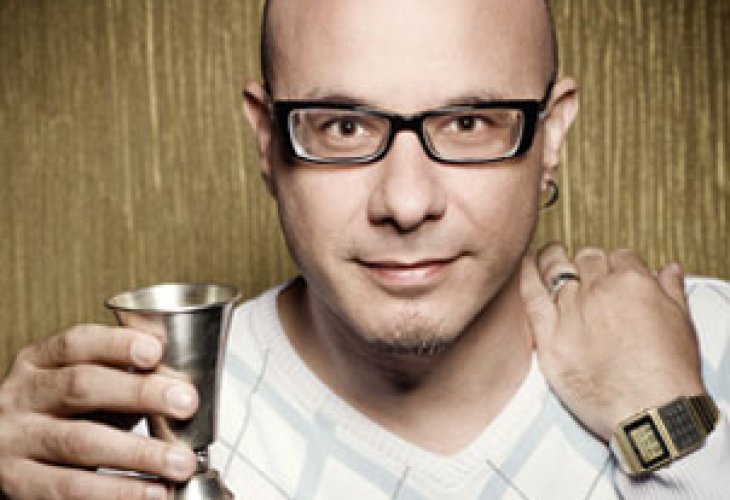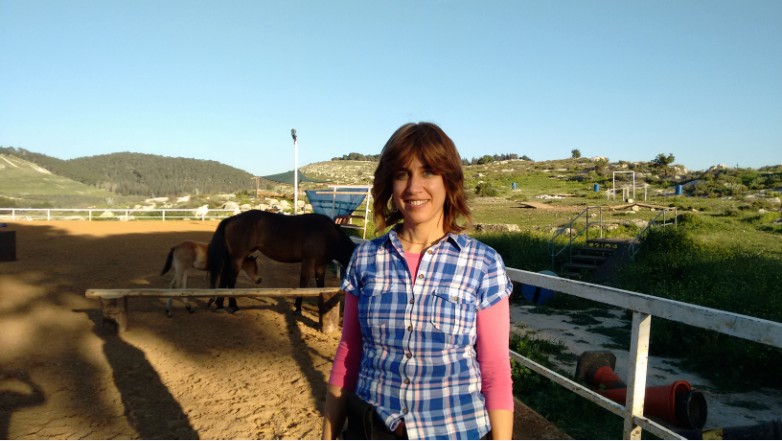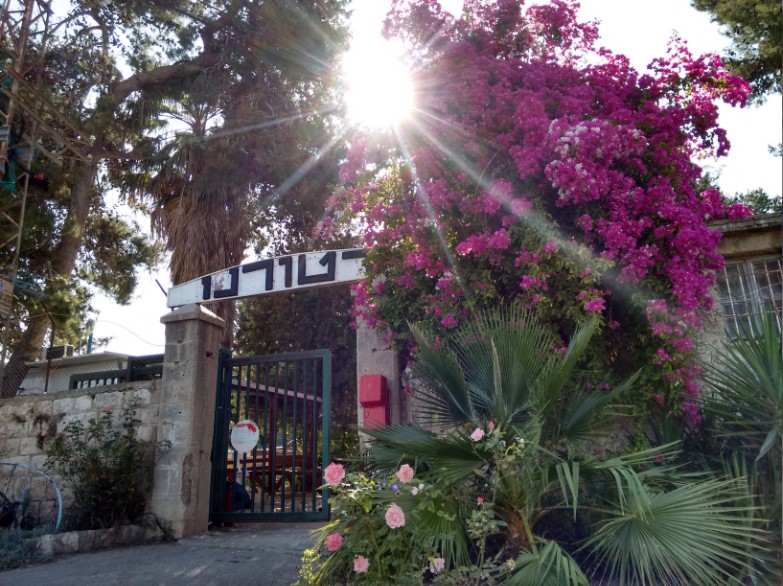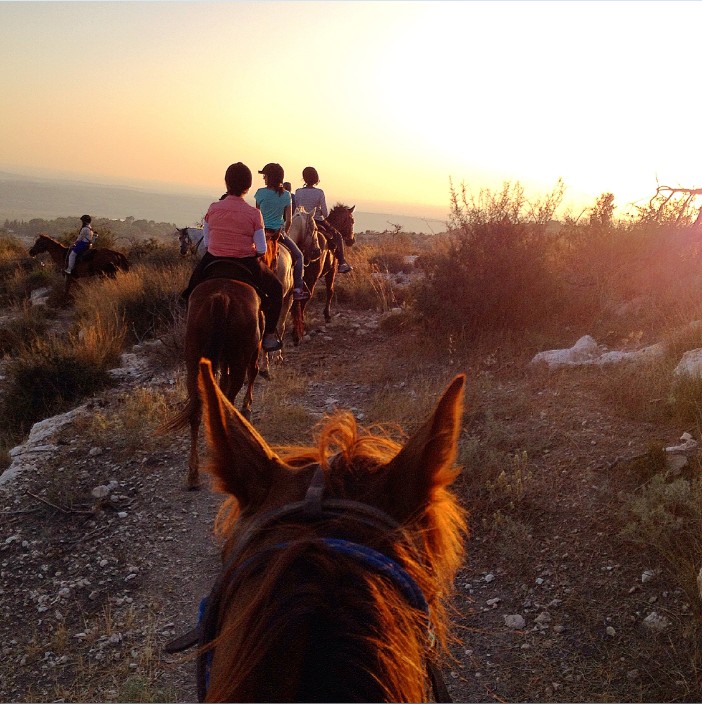"You Can Get Addicted to Anything, Even Music"
Shoshana Schwartz, an addiction counselor at Retorno, talks about the endless variety of addictions, how to identify an addict, and the path to recovery and a renewed life.

Shoshana Schwartz arrived at Retorno, the addiction rehabilitation center in Givat Shemesh under the leadership of Rabbi Eitan Eckstein, almost by accident: her friend knew the place through her daughter, who underwent addiction treatment there. One day, she suggested to Shoshana to volunteer in coaching recovering girls in basketball. "I love being busy, so I started volunteering two hours a week, and in return, I received an hour of horseback riding lessons," she recalls. "Pretty soon I got attached to the addiction treatments that Retorno specializes in. With a background in psychology and education, I took several courses there, and after an intensive internship, I became part of the staff."
Retorno deals with addictions from several aspects. Besides the therapeutic inpatient program for addicts, it also operates a large prevention department. "Every year about 30,000 people go through prevention programs with us: educators, soldiers, high school students. The prevention workshops don't focus on the damages of addiction – it's proven that it doesn't help. After all, every smoker knows that cigarettes kill them, yet that doesn't help them quit. Instead, we focus on the fact that addiction is not the problem, but rather the solution our mind finds when we're in distress and need to escape. The participants learn to understand themselves, learning their escape mechanisms."
 (Shoshana Schwartz, addiction counselor at 'Retorno')
(Shoshana Schwartz, addiction counselor at 'Retorno')Schwartz emphasizes that you can get addicted to anything – really anything. "Even listening to music." How do you differentiate between a hobby and an addiction? "We call it: 'everyone uses, not everyone is addicted'. The question is who serves whom, who manages whom. Do I decide when I close the book and do something else, or does the book decide? Do I enjoy music or simply can't fall asleep without it? Awareness programs aim to clarify this point to people. For religious groups, we also highlight the difference between *Yetzer Hara* and addiction. And there is a difference: addiction takes away your free choice."
At Retorno, they treat those who are already addicted in various ways, the most prominent being the famous '12-step' method. The method is based on a support group led by a professional, and attaching sponsors, former addicts themselves, to support those just starting on the path to recovery. "If a person doesn't go through a process, they can't truly heal," explains Schwartz. "An alcoholic can hold back for years and not drink alcohol, but if they don't undergo a process, they're just a 'dry' alcoholic. You can hold your head underwater for a long time, but eventually, you need to bring it up to breathe. Eventually, they'll return to the addiction if the underlying issues are not addressed."
In Retorno's inpatient department, only people suffering from addiction to drugs, alcohol, or gambling are treated. The inpatients at Retorno stay for six to nine months. Sometimes the family convinces them to be hospitalized, sometimes social workers bring them in from the street, and sometimes a judge sends them for rehabilitation as an alternative to incarceration. "At first, they sometimes don't want to recover. There are those who, after two months, tell us they'd prefer prison over rehabilitation. But then they discover that it's possible to live without drugs, to build a life. To rise and rehabilitate."
What happens with older addicts who refuse treatment?
"We always say that in the case of a married addict, whether they are willing to undergo treatment or not, the spouse should come to treatment themselves. The spouse receives tools to set boundaries and not assist or cover for the addict but to let them face the consequences of their actions."
In addition to the inpatient program, Retorno also hosts the 'Meetings' outpatient program. In this program, says Schwartz, participants include people with a wide variety of addictions. "Millions of types, seriously. There are addictions to food, Facebook, and Candy Crush. Whatever you want." These addictions, she says, are far more problematic to treat. An alcohol or drug addict can simply learn to avoid them forever. But what do you do with a food addict? Or with a high-tech worker addicted to the internet?
 ('Retorno', the addiction rehabilitation center in Givat Shemesh under Rabbi Eitan Eckstein)
('Retorno', the addiction rehabilitation center in Givat Shemesh under Rabbi Eitan Eckstein)What do you really do?
"Usually, we start with a lot of restrictions. Like someone with diabetes who gets very precise instructions on how to manage and what to eat. Someone addicted to Facebook, for example, might initially have to work in a job without a computer. Later on, when they have effective and stronger tools, they might be able, with close guidance, to return to computer work without falling again. Even food addicts might have to permanently avoid certain ingredients, like sugar or flour, to which they are particularly addicted."
It's not something you can do alone, Schwartz emphasizes. "You need a very high level of honesty to deal with your addiction. It's very hard to progress and recover alone without close guidance and an outside perspective."
Statistics mention about 10-13 percent of the population suffering from one addiction or another. One of the most common addictions, you'd be surprised, is addiction to relationships. Or, by its more commonly known name, 'coda' (short for 'co-dependency').
Addiction to relationships is a perfect example of an addiction that you need to learn to live with, as you can't send each of these addicts to a deserted island. Instead, they need to learn how to manage proper relationships with those around them. "This addiction means that I live my life through other people. I'm dependent on them to feel I exist. Either I am constantly saving them, or they are saving me. Sometimes such a woman might be considered a perfect mother and wife, but she's not doing things because she wants to, but because she feels obligated. She'll stay awake until one in the morning to talk to one daughter and then bake a layered cake for another daughter who asked for such a cake for a party. By morning, she'll be completely exhausted and unable to get out of bed. And it stems from the fear of disappointing someone, from the fear that someone might be angry or dissatisfied with me. This is not a healthy place at all. This addiction is particularly prevalent among women, who sometimes feel they don't exist if they're not the best wife/mother/daughter out there."
 (Shoshana Schwartz guides a therapeutic riding group for girls in recovery)
(Shoshana Schwartz guides a therapeutic riding group for girls in recovery)Treating addicts is a long and grueling process, but, Shoshana says, the satisfaction of helping someone kick an addiction and achieve deep mental health is profound. "It's very moving when you see a girl who came to 'Meetings' with a severe problem of addiction to a dependent relationship, and suddenly she's alive, there's a light in her eyes, and she's even starting to become a sponsor for other girls."
Besides her work at Retorno, Schwartz is also an author, publishing novels in English for the ultra-Orthodox Anglosphere. Her latest book deals with addictions – mainly addiction to relationships and shopping. "The idea for the book came to me while working with recovering girls on writing, which is a very powerful tool to feel one's emotions and connect to oneself. They let me read what they wrote, and suddenly I realized such a story could be a big success and raise awareness of addictions within the ultra-Orthodox public. Because it's my workplace, I didn't need to do any research. I had all the background materials at my fingertips."
The reactions to the book, published as a serialized story in the 'Family in English' newspaper, came from all over the world. "Suddenly the word 'coda' became familiar. Countless women and girls found themselves in the characters of the story. Several religious groups have opened worldwide. It created a massive wave of awareness. If, before the book, there were almost no Jewish 'coda' groups outside of Israel, now there are."
As guidance for parents, do you have advice for those who fear their child might develop addictions?
"Usually, there is also a genetic component in an addictive personality, but it doesn't mean that the child's upbringing doesn't have an effect. I'm currently teaching a course on this topic for teachers and counselors and emphasize that every child needs three things: acceptance, listening, and love. In fact, these are things we all need, not just children. I've heard from countless addicts that although they had caring families, they still felt lonely and misunderstood. They sought a hug – and when they couldn't find it in the right place, they found it on the street."

